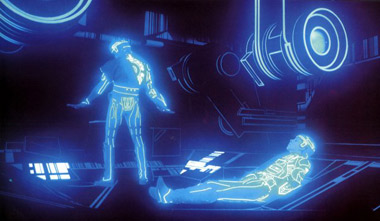Putting the Science in Science Fiction
By Steven Pate in Arts & Entertainment on Oct 19, 2010 8:40PM
 The silver screen is the canvas onto which we project our imagination, and our imagination is often, well, nerdy. From the big-budget, high concept juggernaut that was Avatar to the subdued and stately Never Let Me Go currently knocking over critics on art house screens, the movies just love science fiction. It's been that way since the very beginning, and in case you haven't seen any trailers for Tron Legacy, it's still true today.
The silver screen is the canvas onto which we project our imagination, and our imagination is often, well, nerdy. From the big-budget, high concept juggernaut that was Avatar to the subdued and stately Never Let Me Go currently knocking over critics on art house screens, the movies just love science fiction. It's been that way since the very beginning, and in case you haven't seen any trailers for Tron Legacy, it's still true today.
But how accurate is the science of our favorite films? Are we getting closer achieving any of the fanciful things which caught our imagination in movies of the past, or any better at portraying scientifically believable future technologies? These are some of the questions WBEZ's Gabriel Spitzer will be asking of the four Northwestern scientists joining him on stage for a discussion called Mutants, Androids, and Cyborgs: The Science of Pop Culture Films tomorrow night.
The professors include Todd Kuiken, MD, PhD, director of the Neural Engineering Center for Artificial Limbs (NECAL) and amputee services at the Rehabilitation Institute of Chicago (seen here working on some amazing artificial arms); Malcolm MacIver, PhD, associate professor of biomedical engineering, mechanical engineering and neurobiology and physiology and also the Cylon technical advisor for Battlestar Galactica prequel spinoff Caprica; Tom Meade, PhD, Eileen M. Foell professor of chemistry, biochemistry and molecular and cell biology, neurobiology and physiology, and radiology; and Catherine Woolley, PhD, professor of neurobiology and physiology.
The scientists will discuss and show some clips of their own favorite science fiction movie moments and talk about how their own research into robotics, nanotechnology, and neuroscience relate to what you see on the big screen. It sounds great, just so long as they don't try and tell us that the Millennium Falcon could never have made the Kessel Run in less than twelve parsecs. That would be too much.
Mutants, Androids, and Cyborgs: The Science of Pop Culture Films takes place at the Ryan Family Auditorium, Technological Institute, Northwestern University, 2145 Sheridan Road, Evanston, on Wednesday, October 20 at 7 p.m.